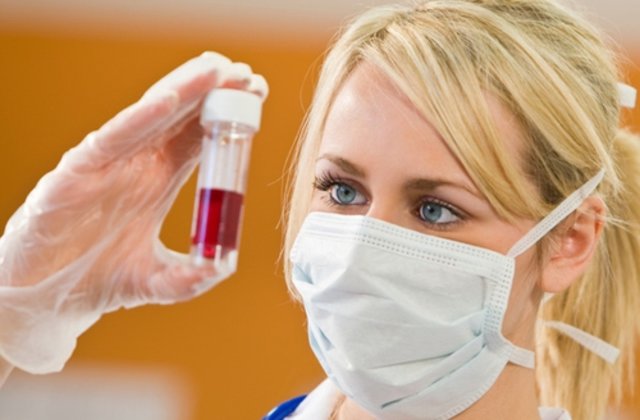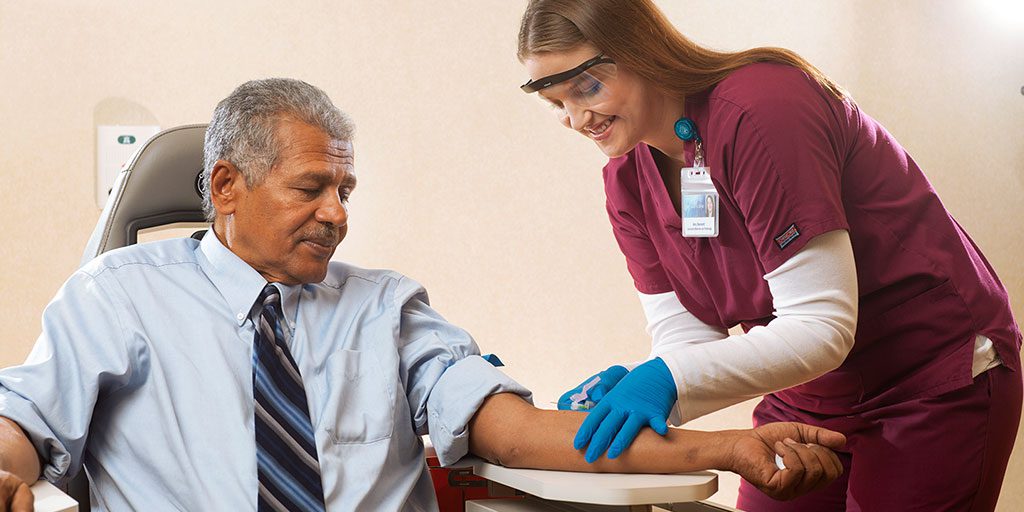Not many people have heard about Phlebotomist or Phlebotomist technician. If you are excited about pursuing a career in the healthcare field that allows you to help many people in a single go, then working as a phlebotomist is worth exploring.
They are the healthcare providers whose job is to draw blood from the patients, ensure that the correct amount is taken, and proper labelling of the blood sample for medical testing, transfusion, or donation. It is a great way of starting your career in the flourishing healthcare industry.
Anyone who opts for this field has to be comfortable with all the blood, needles, databases, test tubes and blood vials, and medical settings where people will be unsure or worried about their health.
Patients or blood donors find these professionals in a diagnostic lab, physicians’ offices or blood donation centres. They are trained to collect the blood sample by use of venipuncture or finger pricks or for babies, by using heel pricks. Without these professionals, doctors couldn’t have the information they needed for diagnosing diseases and the blood banks and donation centres couldn’t function and many lives would have been lost.
This career path is extremely rewarding and it offers job security, variety and flexibility. They are an instrumental part of the healthcare providers’ team ensuring that the diagnosis of illness or disease is done safely and quickly.
Duties of Phlebotomists
The key responsibilities of phlebotomists include accurate labelling, proper storage and careful transport of blood samples.
- Draw the blood, verify the identity of the patient or blood donor, labelling the sample and enter the verified information in a database.
- Assembling and maintenance of medical equipment like needles, test tubes and blood vials for prevention of infections and complications.
- Reassuring nervous patient’s who fear needles and explain their work to the patients’ who are interested.
- Assisting patients if they face any adverse reaction after withdrawing their blood.
- Always keep the workplace neat, clean and sanitary.
- Make sure the equipment is properly sanitized before blood collection.
- Observation of safety protocols strictly for avoiding direct contact with the patient’s blood.
- Measuring and recording of patient’s vitals like blood pressure, temperature, pulse and oxygen levels.
- Maintenance of patient’s records and sending the samples of blood, urine and stool for lab testing.
- Be accurate and detail-oriented with their work and perform well under pressure and communicate effectively with different individuals.

Academic Qualifications
- To get accepted in phlebotomy programs, you should have a high school diploma or an equivalent degree.
- Enrollment in postsecondary education phlebotomy program that includes courses in anatomy, physiology and medical terminology.
- Pursue professional certificate in Phlebotomy. After getting certified, maintain the certification by taking the necessary steps. Most of the employees employ phlebotomists who have passed the certification exam successfully.
- Following are some certification programs available.
- Phlebotomy technician: This certification is provided by the American Society for Clinical Pathology and renewal is needed every 3 years.
- Certified Phlebotomy technician: This certification is provided by National Health Career Association and renewal is required every 2 years.
- Registered Phlebotomy technician: This certification is offered by American Medical Technologists and renewal is required every 3 years.
Salary
Phlebotomists are paid on an hourly basis. The salaried depend on the professionals’ location, shift, prior experience and education. The median salary of a phlebotomist is $35,510 per year.
The median annual salaries of these professionals in the top industries they work are as follows:
- Outpatient care centers- $41,620
- Medical and diagnostic labs- $37,220
- All ambulatory services- $34,460
- Physicians’ offices- $34,400
- Hospitals at state, local and private- $33,720
Most phlebotomist work full-time. They may be required to work on nights, weekends and holidays.

Job Prospects for Phlebotomists
The projected percentage change in employment of these healthcare providers is 24% from 2016 to 2026. Hospitals, diagnostic labs, blood donor centres and other medical settings need these workers to perform the blood work.
Blood collection and analysis is important functionality in medical labs and hospitals. Doctors and other healthcare workers require patient’s blood for analysis and diagnosis thus increasing the demand for phlebotomists. They are generally busy during a health emergency corresponding to high interest in blood donations.
The different careers for phlebotomists are:
- Certified phlebotomy technicians
- Phlebotomy technicians
- Venipuncturists
Job prospects are greater for certified phlebotomists. They receive certification from any of the several reputed organizations like:
- National Center for Competency Testing (NCCT),
- National Health career Association (NHA),
- The American Society for Clinical Pathology (ASCP),
- The National Phlebotomy Association, and
- The American Medical Technologists (AMT)

– Samiya Firdous






